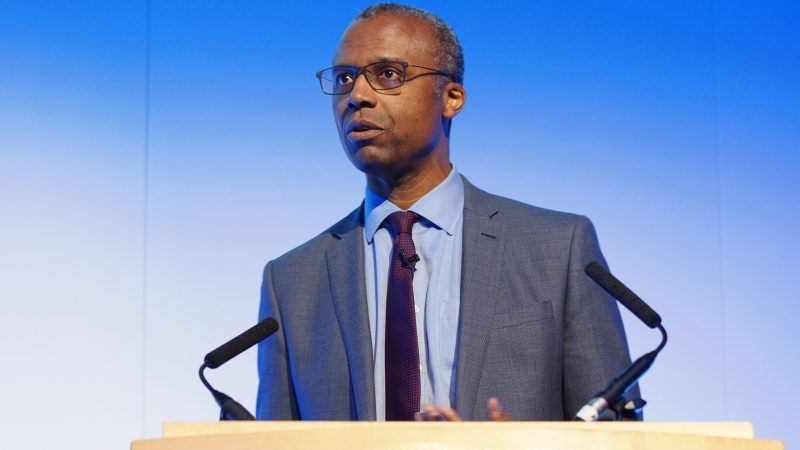
No matter your race, ethnicity or background, we all deserve fair treatment for the effort we put in. And we all deserve fair pay, a chance to progress, and dignity at work. Last year, in the wake of the Black Lives Matter protests, the Prime Minister made a commitment “to tackle the substance of the problems” and set up the commission on racial and ethnic disparities.
We hoped the commission would recommend action to achieve equality in UK workplaces and wider society. But instead, the commission’s report denies the lived realities and experiences of Black and minority ethnic people, creating the impression that it is BME workers’ perceptions and choices that are the problem.
It attempts to turn the clock back, to the time before the Macpherson Inquiry into the death of Stephen Lawrence – a time when racism was wrongly portrayed as ‘a few bad apples’, rather than the consequence of structural and systemic institutional failings.
The commission got it wrong. Racism is not anecdotal, as the chair Tony Sewell suggested. It is real and systemic in a country where, whatever the progress of recent decades, the system remains stacked against people by race, class and gender.
We need answers from the Prime Minister. Do the denials of institutional and structural racism of the report reflect the government’s direction of travel on race equality? Did the manner of the report’s publication intend to cause division, rather than calm? And what role did the government play in determining the report’s conclusions and recommendations?
Unions are clear: the report reinforced institutional racism by denying the facts of everyday racism. And that denial, if left unchallenged, could have a chilling effect on efforts to achieve workplace equality for BME workers in both the public and private sector. That’s why more than 30 trade union general secretaries have written to the Prime Minister repudiating the report.
Institutional and structural racism are real. They scar our country, hold back our economy, and undermine BME workers’ life chances. The Black and minority ethnic unemployment rate is almost double that of white workers. Black people are twice as likely to be trapped by poverty. Black workers are more likely to be in lower paid, insecure jobs or on zero-hours contracts. Black job-seekers are more likely to be refused a job, and one study found they must make 60% more job applications before being invited to interview.
Black workers in London, the region with the highest BME population, experience a 24% ethnicity pay gap. And Black workers are less likely to have received financial support during the pandemic, with young people from BME backgrounds more likely to be unemployed than white workers at every qualification level.
Racial discrimination occurs regardless of place and class, as shown by the fact that so many BME people live and work in the UK’s wealthiest city, yet fail to reap the rewards. And BME graduates from top universities find it harder to progress in their career than other workers.
Structural racism has played out during the pandemic, with BME people being three times more likely to die from coronavirus. This is not mere coincidence but reveals deeper structural issues to do with where people live, how much they earn and the jobs they do.
Unions propose an alternative approach to workplace equality – one that unites the interests of Black and minority ethnic workers with the interests of all workers. Today’s working class is multi-ethnic and multi-faith. Alongside specific action on racism, action to defend working class interests will reduce inequalities of class and race together.
In 2017, the government commissioned a report on race in the workplace from Ruby McGregor-Smith. She was clear that structural racism and unconscious bias are real obstacles to Black and minority ethnic working people. She recommended action on unconscious bias and recruitment and progression. The recommendations do not go far enough, but implementing them would be a start.
Unions believe ministers should go further and require employers to disclose and act to close ethnicity pay gaps. And every employer must be made responsible for protecting their workers from racist abuse by customers or clients.
Real equality at work, though, will come when everyone has a decent, secure job, with fair pay and in a safe workplace. That is why any race equality initiative must include action on the epidemic of insecure work that disproportionately traps BME workers in low-paid, casualised, risky occupations.
No working person should be paid less than a real living wage. No working person should have their life chances limited by the everyday precarity of insecure jobs. Business models based on denying workers’ rights are undercutting decent employers and making profits from exploitation.
The Conservatives promised an employment bill to improve rights and fairness at work following the 2019 election. But it has been delayed again and again. If the government is serious about race equality for working Britain, it will announce an employment bill in the Queen’s speech in May, with a clear mandate to stamp out insecure work.
Action to defending working class interests can reduce inequalities of class and race together. Unions reject attempts to divide working people, and set their interests against one another. We will not stop campaigning, organising and bargaining for decent work, fair wages, safety and an end to racism and discrimination – for BME workers and for everyone. We stand for all working people.




More from LabourList
Turning the page? Labour’s recovery in the polls show a path to 2029 victory
Restoration announce recommendations for NEC candidates
‘Factionalism at the top is weakening Labour – and handing a gift to Reform’